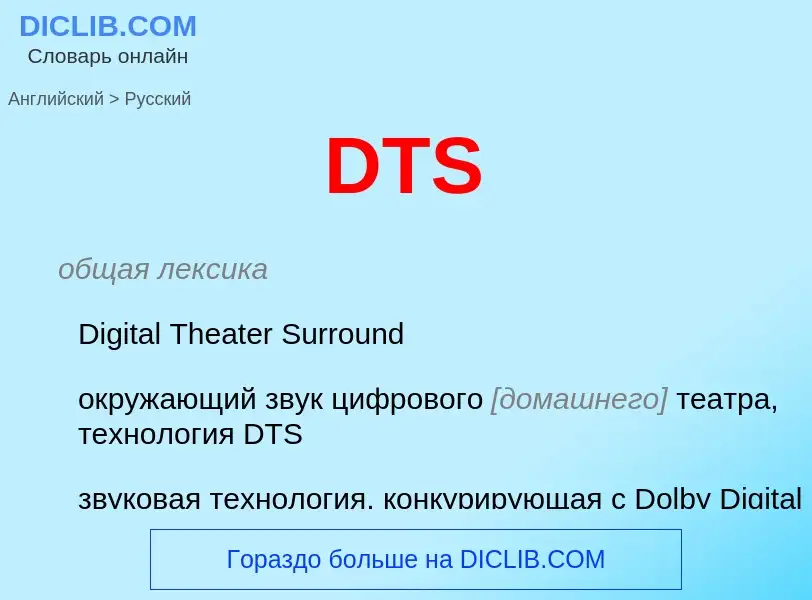Translation and analysis of words by ChatGPT artificial intelligence
On this page you can get a detailed analysis of a word or phrase, produced by the best artificial intelligence technology to date:
- how the word is used
- frequency of use
- it is used more often in oral or written speech
- word translation options
- usage examples (several phrases with translation)
- etymology
D T delirium tremens - translation to
общая лексика
Digital Theater Surround
окружающий звук цифрового [домашнего] театра, технология DTS
звуковая технология, конкурирующая с Dolby Digital (ранее AC-3)
[diliriəm'tri:menzdili(ə)riəm'tremənz]
общая лексика
белая горячка
психиатрия
алкогольный делирий
существительное
общая лексика
белая горячка
Definition
. ·сокр. т. е., то есть; т. к., так как; и т. д. и так далее; и т. п., и тому подобное; т., том; тысяч.
Wikipedia
.jpg?width=120)
Delirium tremens (DTs) is a rapid onset of confusion usually caused by withdrawal from alcohol. When it occurs, it is often three days into the withdrawal symptoms and lasts for two to three days. Physical effects may include shaking, shivering, irregular heart rate, and sweating. People may also hallucinate. Occasionally, a very high body temperature or seizures (colloquially known as "rum fits") may result in death. Alcohol is one of the most dangerous drugs to withdraw from.
Delirium tremens typically only occurs in people with a high intake of alcohol for more than a month. A similar syndrome may occur with benzodiazepine and barbiturate withdrawal. Withdrawal from stimulants such as cocaine does not have major medical complications. In a person with delirium tremens it is important to rule out other associated problems such as electrolyte abnormalities, pancreatitis, and alcoholic hepatitis.
Prevention is by treating withdrawal symptoms. If delirium tremens occurs, aggressive treatment improves outcomes. Treatment in a quiet intensive care unit with sufficient light is often recommended. Benzodiazepines are the medication of choice with diazepam, lorazepam, chlordiazepoxide, and oxazepam all commonly used. They should be given until a person is lightly sleeping. The antipsychotic haloperidol may also be used. The vitamin thiamine is recommended. Mortality without treatment is between 15% and 40%. Currently death occurs in about 1% to 4% of cases.
About half of people with alcoholism will develop withdrawal symptoms upon reducing their use. Of these, 3% to 5% develop DTs or have seizures.
The name delirium tremens was first used in 1813; however, the symptoms were well described since the 1700s. The word "delirium" is Latin for "going off the furrow," a plowing metaphor. It is also called the shaking frenzy and Saunders-Sutton syndrome. There are numerous nicknames for the condition, including "the DTs" and "seeing pink elephants" (see below).

.jpg?width=200)
